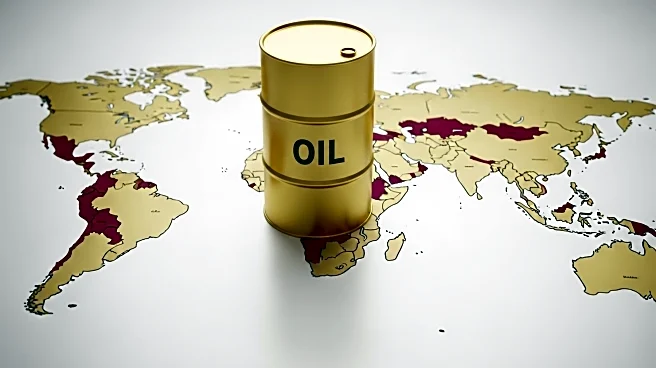What's Happening?
OPEC+ has been facing significant challenges as Russian oil production declines due to international sanctions and aging oil fields. For the past decade, OPEC and Russia have worked together to maintain high oil prices, but recent sanctions following Russia's invasion of Ukraine have impacted its oil production capabilities. The sanctions have restricted Russia's access to Western technology and equipment necessary for developing its shale reserves, leading to a decline in production. This situation is exacerbated by the aging of Russia's conventional oil fields in Western Siberia and the Volga-Urals region. As a result, Russia's oil output is expected to decrease significantly by 2030, potentially affecting global energy supply.
Why It's Important?
The decline in Russian oil production is significant for global energy markets, as it could lead to a supply shortage at a time when global demand is expected to rise. This situation could drive up oil prices, impacting industries and economies worldwide. The U.S. shale industry, which has been a major contributor to global oil supply growth, may benefit from this shift as it could fill the gap left by declining Russian production. However, the geopolitical tensions and economic sanctions that have led to this decline also highlight the complexities of international relations and their impact on global energy security.
What's Next?
As Russian oil production continues to decline, OPEC+ may need to adjust its strategies to stabilize the market. This could involve revisiting production quotas or seeking new alliances to manage supply and demand dynamics. Additionally, the U.S. and other oil-producing nations may need to increase their output to compensate for the shortfall. The ongoing geopolitical tensions and sanctions will likely continue to influence the global energy landscape, requiring careful navigation by all stakeholders involved.









